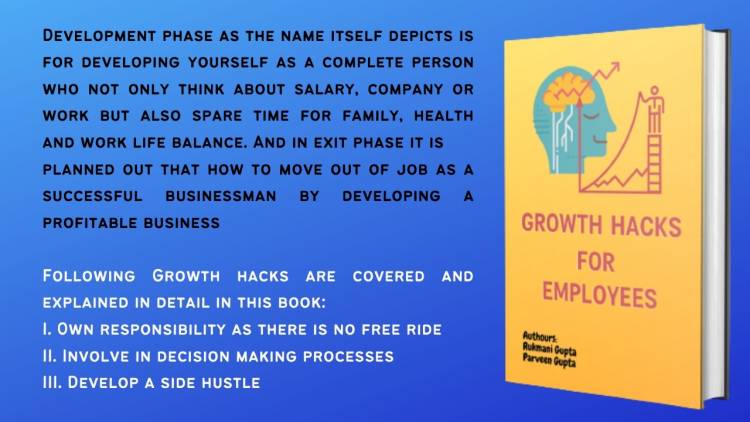Know all about a Will
What is a Will (वसीयत):
A will (वसीयत) is a legal document having declaration of a person regarding declaration of his assets (Moveable or Immoveable) after his / her death. This is the only document on the basis of which whole wealth, property, assets etc. will be distributed after death of a person.
A will (वसीयत) can be altered or revoked by the owner at any time and any no. of times before his / her death.
There are two types of Will (वसीयत):
1. Privileged Will (वसीयत): which are made by soldiers who are employed in a war like situation or an airman or mariner. These types of Wills (वसीयत) do not need to follow many formalities.
2. Unprivileged Will (वसीयत): Will (वसीयत) other than privileged Will (वसीयत) are known as unprivileged Will (वसीयत). A lot of formalities are needed to be followed in these Will (वसीयत).
Who can make a Will (वसीयत):
Every person of sound mind not being a minor can make a Will (वसीयत).
Explanation 1.—A married woman may dispose by Will (वसीयत). of any property which she could alienate by her own act during her life.
Explanation 2.—Persons who are deaf or dumb or blind are not thereby incapacitated for making a Will (वसीयत) if they are able to know what they do by it.
Explanation 3.—A person who is ordinarily insane may make a Will (वसीयत) during interval in which he is of sound mind.
Explanation 4.—No person can make a Will (वसीयत) while he, is in such a state of mind, whether arising from intoxication or from illness or from any other cause, that he does not know what he is doing
Key Parties in a Will (वसीयत):
Testator – A testator is the person who creates a will (वसीयत).
Executor – A testator is required to name an executor to execute his Will (वसीयत). An executor must pay off debts, manage assets of testator until they are disbursed and make sure they are distributed according to wish of testator. Most people choose a spouse, adult child or close friend to serve as executor but one must make sure that executor must not have some vested interest.
Beneficiary – A beneficiary is the person receiving an inheritance, such as cash or property, from the testator through his Will (वसीयत). Beneficiaries can be people, firm or organizations.
Guardian – If any beneficiary in Will (वसीयत) is minor, then testator need to name a guardian for them in his Will (वसीयत). A guardian provides for a child's personal need like education and medical care etc.
Trustee – If the Will (वसीयत) establishes a trust to distribute the property, then there is need to designate a trustee to manage this trust. A relative or friend can be chosen for this, as an alternative, a corporate trustee, such as a banker or financial advisor may also be chosen.
Witness - There should be at least two witnesses who sign the will (वसीयत) stating that the testator has executed the will in their presence.
What are essential requirement for drafting a will (वसीयत):
1. Intention of the testator – should be very much clear.
2. Declaration – of soundness of mind / health and not being minor.
3. Manner of disposal of property – should be declared in detail.
4. Sign by witnesses: by at least two witnesses
5. Registration: to avoid litigation a Will (वसीयत) should always be registered
What should be included in a Will (वसीयत)?

FAQ (frequently asked questions) Related to Will (वसीयत):
1. Why should I go for making a will (वसीयत)?
Will (वसीयत) is must to prevent disputes among legal heirs. If there is Will (वसीयत) then there is no any chance of litigation otherwise distribution of assets among legal heirs becomes a tedious job which always creates litigation.
2. Me and my spouse should have joint will or separate Will (वसीयत)?
Husband and wife should always go for separate Will (वसीयत) and avoid joint Will (वसीयत), because odds are that both husband & wife won’t die at the same time and there may be properties which are not jointly held.
And benefit of separate Will (वसीयत) is that each one can address specific issues like ex-spouse and children from previous relationship.
3. Where I should keep my Will (वसीयत)?
Being a very important document Will (वसीयत) should always be kept in a very safe but accessible place. You can choose Bank locker or a waterproof and fireproof safe at home.
4. What should I choose – Gift Deed or Will (वसीयत)?
We have to understand difference in both Gift Deed and Will to decide as it all depends upon the circumstances and intention.
A Will is always revocable during the life time of testator. Meaning of revocable is that the testator can change it any time, any no. of times during his life. And will is preferred when the testator want to use the assets during his life time and want to vest the right of property to someone only after his death.
On the other hand a Gift Deed is irrevocable means once Gift Deed is prepared and accepted by donee then there is no option to change the decision. Gift deed is preferred when the donor want to help someone immediately and want the vesting of rights of property with immediate effect.
5. What will happen if no any executor is appointed in Will (वसीयत)?
In case no any executor is appointed, the Court will appoint administrator to carry out the work of executor.
6. In case of no Will (वसीयत), who will get the assets after death?
In case of no Will (वसीयत), all the assets will be distributed according to the prevailing succession laws, based on religion of deceased person.
7. Should I register my Will (वसीयत)?
Registration of Will (वसीयत) is not mandatory. But it is recommended to have it registered to avoid litigations. Following are the main benefits of registration of will (वसीयत):
- If original will (वसीयत) is lost or destroyed, then you can get the certified true copy form sub-registrar office
- In case there is any tempering with original Will (वसीयत), then you can compare with the will maintained in office ofsub-registrar
8. Will (वसीयत) can be challenged in court?
Yes, Will (वसीयत) can be challenged in court if presence of fraud, undue influence or suspicious activities is proved. Following is the procedure to challenge a Will (वसीयत):

 Download APP
Download APP
 P K Gupta
P K Gupta 













































